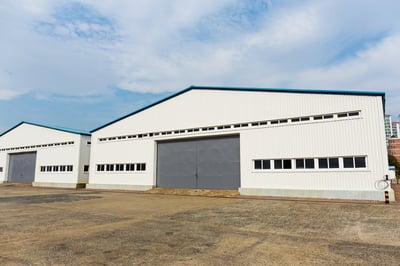Why You Need To Plan Your Contract Packaging Logistics Early
Suppose you are getting ready to outsource your packaging with a co-packer. In that case, you will want to be sure to plan the logistics of your contract packaging project early.
In fact, you should probably start yesterday.
You may be thinking, what's the rush? Why do you have to expedite this process? Is there a reason that this process needs to be completed so early?
The simple answer is yes.
There are multiple reasons why you will want to plan your contract packaging project and iron out all the logistics with your chosen contact packaging vendor early.
But, what are the reasons you need to do this? What are the driving forces behind this need to complete these items in a timely fashion?
This article will explain each item you need to plan in advance and explain why these things must be done earlier than later.
This article will provide you with a solid understanding of why you need to plan your contract packaging logistics early and the consequences of not doing so.
Why Do You Need To Plan Your Contract Packaging Logistics Early?
This is not only a fair question but an essential one. Many elements and moving pieces go into a contract packaging project.
And many variables can affect the success of the project. From lead times to logistics and from machinery to materials, there is a lot that needs to be considered when outsourcing your packaging with a co-packer.
But, what are the elements that you must think about, and why is it essential to start planning the logistics of these items as early as possible?
Below we will review each of these elements and explain why it is important to figure things out now rather than later.

Desired Number Of Products Packaged
Are you looking to package one product or one hundred? While you may not think about it at first, this is an essential item to figure out.
You will want to notify your contract packaging partner about this element of your project for various reasons.
For the most part, if you are only running one product, your project will take less time to complete than if you are running 10, 20, or 100 products.
The more products you want to run, the more complicated the project will be and the longer it will take to complete.
Suppose speed to market is an essential consideration for your project. In that case, you will want to get this information to your chosen co-packer as soon as possible.
The longer you delay, the longer the project will take and the slower your products will get to market.
Also, it should be noted that your contract packaging partner is going to want to know how big the runs of each product will be.
Are you looking to package ten thousand products per run? One hundred thousand products? Whatever that number is going to be, you will want to communicate this to your co-packer in advance.

Contract Packaging Turn-Around Times
Do you want this project to be completed promptly? Can you wait as long as needed before your finished goods go out to retail?
If you want a fast turnaround time, you will have to explain your expectations to your co-packer and work with them to iron out the details of your project.
Generally speaking, the more complicated the project, the more time it will take to complete. If time is of the essence, you will need to communicate your needs to your contract packaging partner early to achieve your desired goals.

Product And Packaging Availability
Be sure to let your co-packer know if your products are ready to be shipped to them or not. Let them know a date and time when they can expect the arrival of your products.
Failure to do this in advance will complicate the process causing your contract packaging project to take longer and possibly cost more.
Additionally, you will want to inform your contract packaging partner if you will be supplying the materials needed to package your products or if you need them to select and source them for you.
The latter situation may result in a longer process and a higher cost. As such, it is imperative to get this information to your co-packer sooner than later to decrease the time requirements and price of the project.
If you need your co-packer to select the proper materials for your contract packaging project, make sure to notify them of these needs at the beginning of your planning sessions for the packaging project you want to outsource through them.
Looking to outsource your packaging?

Product And Packaging Material Samples
You will have to send samples of both your products and packaging materials to your contract packaging company before they can run your project.
This has to be done so that the co-packer can run a time study. A time study is a test that will determine the complexity of your packaging project.
Generally speaking, if your product can be assembled in less than 25 seconds, this will be considered a simple assembly. And your project will be able to get completed faster for a lower cost.
If, however, your product assembly takes a minute or more, this would indicate a complicated assembly and will take more time and money to complete.
If you have a complicated project, but you want to get your products to market as fast as possible, you will need to get your product samples to your co-packer sooner than later.
As it is with the products themselves, the more complicated your packaging supplies and application of said materials, the longer and more expensive your contract packaging project will be.
Getting these items to your co-packer early will help to speed up the process and get your project going.

Contract Packaging Training Resources
If you have a highly complex assembly, chances are, your contract packaging vendor will require training materials such as printed instructions, video tutorials, or on-site training for laborers.
Suppose you send a complicated build to a co-packer without the proper training materials and resources. In that case, builds could be assembled wrong, there could be waste, and you may get hit with fees for going over time restraints.
For example, let's say you have a complex custom POP display that features different products with each belonging in specific spots on the display. In that case, you should provide clear instructions on how to complete this build to your co-packer.
Failure to provide these instructions will likely lead to various problems, including but not limited to the items mentioned above.
A word to the wise, video tutorials for complicated builds are highly coveted training tools. If you can provide these resources to your co-packer, you will likely save both time and money on your contract packaging project.

Contract Packaging Allergen Notifications
Suppose you are looking to outsource your product packaging. In that case, your co-packer will need to know if the product has any potential allergens, toxicity, or safety and compliance complexities.
If your products feature any of these items, they must be disclosed to your co-packer before implementing your contract packaging project.
Failure to provide your co-packer with this information may result in excessive time frames for completion, hefty fines, and many other unwanted headaches that could turn your packaging project into a logistics nightmare.
The sooner you can get this information to your contract packaging company, the better. And remember, this information must be sent in advance of shipping the products and materials from your facility to the co-packer's warehouse.

Contract Packaging Logistics Concerns
Logistics were complicated enough before the arrival of the pandemic. To say that COVID compounded these issues is a gross understatement.
And there have been various black swan events that have led to significant supply chain disruptions year over year since the virus's arrival.
From the Ever Given container ship disaster to the trucking protests in Canada, the supply chain has been taking hit after hit for the past two years.
And these issues are now being further complicated by the geopolitical conflicts and war between Russia and Ukraine.
As such, lead times for various materials, machinery, and supplies crucial to running a successful contract packaging project have been pushed forward by weeks and, in some cases, months.
Due to the conflict mentioned above, gas prices are expected to continue to skyrocket, as are prices for various products and materials connected to the oil industry.
Industries that rely on petroleum products such as the plastic resin markets also continue to see price increases and extended lead times far beyond normal for many items.
So it is of extreme importance that you have clear, open, and regular communications with your co-packer about any elements of your contract packaging project that these events could affect.
This is especially true if you plan on having your contract packaging partner manage any aspects of said logistics.
Failure to have these conversations early in setting up your packaging project may result in a series of problems, including but not limited to significantly higher price points and extensive-time requirements.

Availability Of Contract Packaging Storage Space
You will want to make sure that you confirm with your contract packaging partner that there is, in fact, enough space available in their warehouse to take on your co-packing project before you send them any products, materials, and related supplies.
This is especially true if you do not plan to ship the product to them immediately after confirming that you would like to move forward with a contract packaging agreement.
Failure to communicate about these items in this situation may lead to unwanted issues with inventory and storage capabilities.

Provide Your Co-Packer With All Necessities In Advance
Everything mentioned above is the elements of which you will have to consider before entering into a contract packaging agreement with a co-packer.
It is of extreme importance that you clearly communicate any elements, concerns, fears, questions, comments, and considerations relating to the items mentioned above to your co-packer before you begin a contract packaging plan.
You will want to carefully plan all of the logistics mentioned above with your co-packer as early as possible while providing them with everything they need to ensure that they can give you the best contract packaging service possible.
Who Can Help You Plan Your Contract Packaging Logistics Early?
Now, I understand that was a lot to read and consider. It may feel overwhelming, especially if you attempt to do all of this by yourself.
However, it does not have to be that way. If you want to simplify this process as much as possible, you will want to speak with a contract packaging expert.
They will be able to help you identify and manage all of the elements above and formulate the proper plan in advance of entering into a contract packaging agreement.
About Nathan Dube
As the Digital Marketing Specialist at Industrial Packaging, I am honored to create content for such a phenomenal company and work with one of the greatest teams in the Packaging Industry. Whether creating a video, writing blog posts or generating other pieces of content and multimedia, I am always excited to help educate and inspire our prospects and clients to reach their highest potential in regards to their packaging processes and needs.




